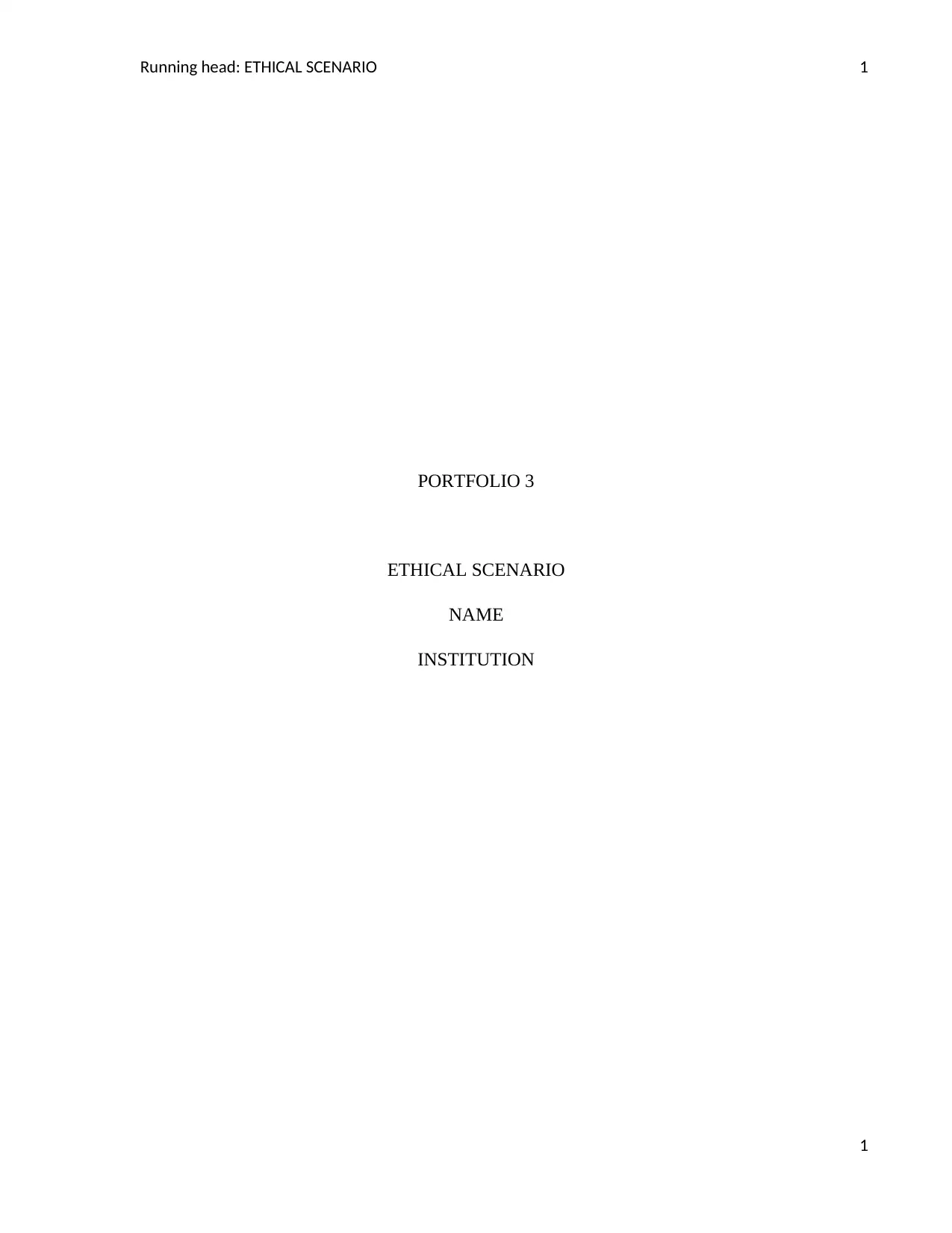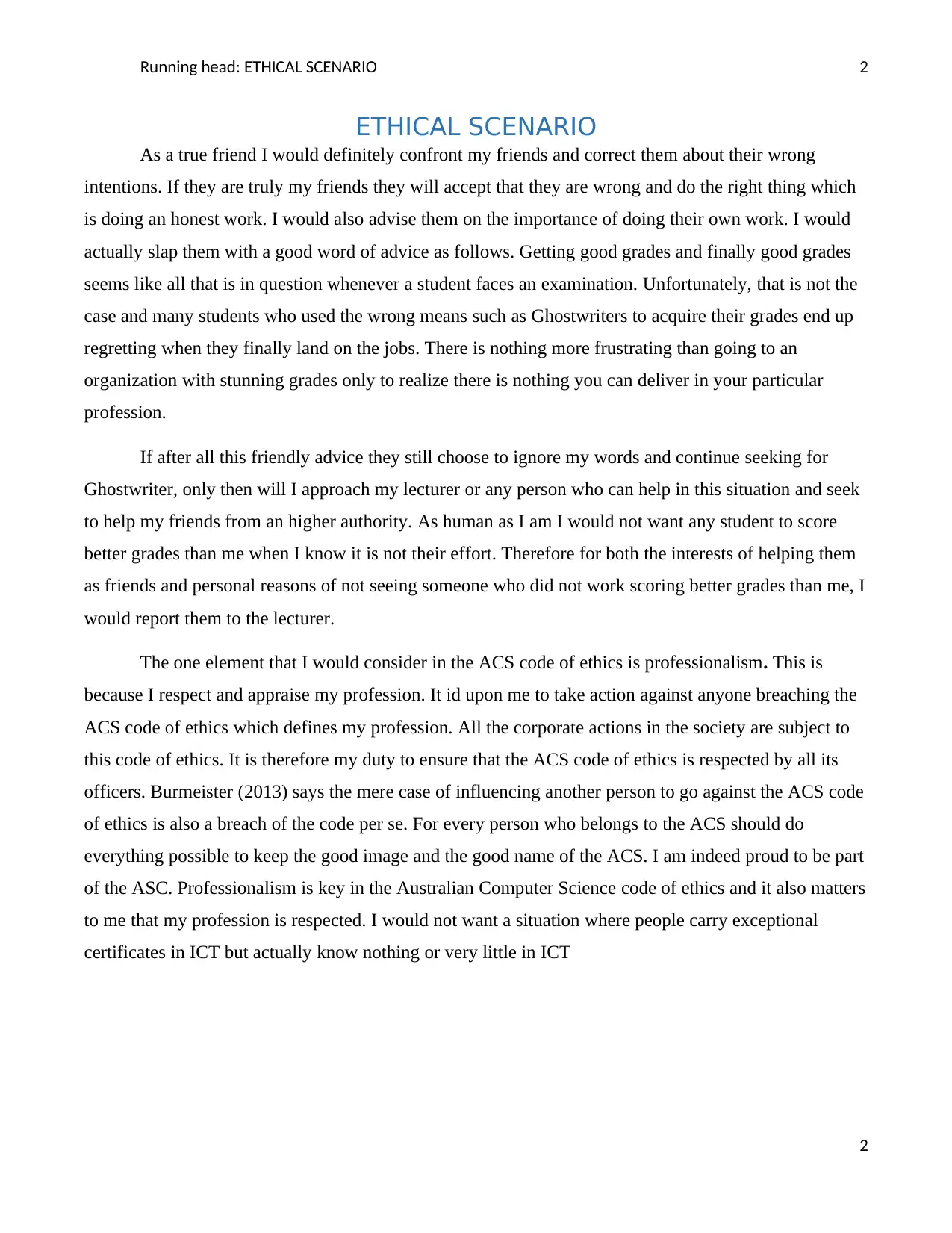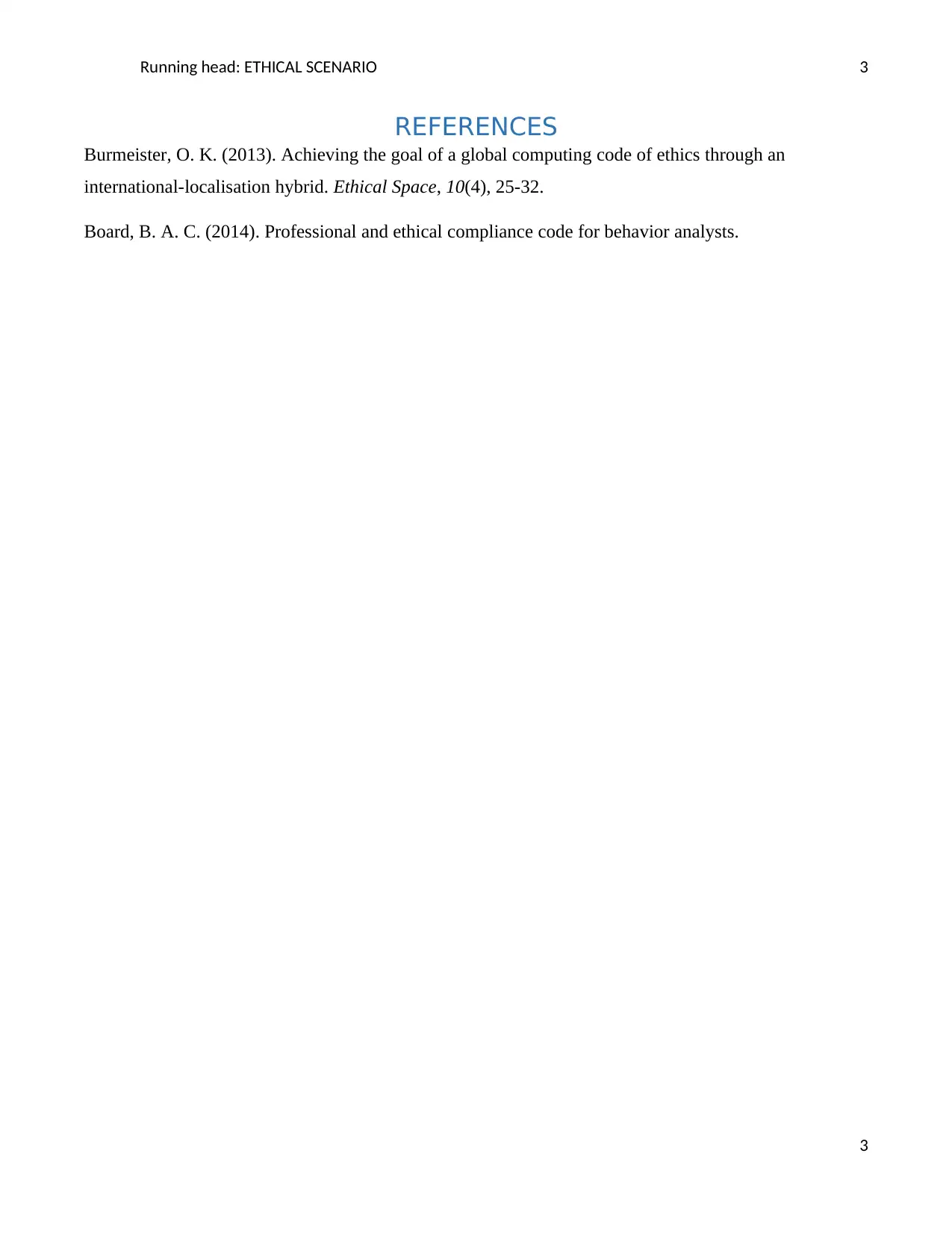Ethical Scenario: Analysis of Professionalism in Computing Ethics
VerifiedAdded on 2021/06/17
|3
|519
|41
Case Study
AI Summary
This case study presents an ethical scenario where the student is confronted with friends using ghostwriters to complete their assignments. The student grapples with the decision of whether to report their friends for academic dishonesty, considering the principles of the ACS code of ethics, particularly professionalism. The student first considers advising their friends and explaining the importance of doing their own work and the potential negative consequences of relying on ghostwriters. Ultimately, the student decides to report the behavior to a lecturer, emphasizing the importance of upholding the ACS code of ethics and maintaining the integrity of their profession. The student also references the importance of the ACS code of ethics and mentions that influencing another person to go against the code is also a breach of the code per se. Burmeister's (2013) research is referenced to support the importance of a global computing code of ethics. The student's primary concern is maintaining the integrity of their profession and ensuring that those who do not uphold the standards of the field are held accountable.
1 out of 3









![[object Object]](/_next/static/media/star-bottom.7253800d.svg)